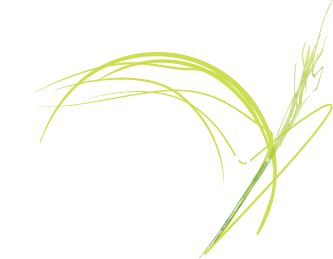A New Kind of Blue
February is the cruelest month (although only 10 days left as of this writing!) and the lack of sun makes many people quite “blue”. The recent Sunday NY Times gave me an interesting perspective on a new color Blue: YInMn blue , a color which has so many meanings.
Apparently there isn’t really a true blue colour or pigment in nature! Both plants and animals have to perform tricks of the light to appear blue! Scientists in Australia seem to have been studying this for some time. They say. “For plants, blue is achieved by mixing naturally occurring pigments, very much as an artist would mix colors. The most commonly used are the red pigments, called anthocyanins, and whose appearance can be changed by varying acidity.
These alterations, combined with reflected light, can create some spectacular results: delphinums, plumbago, bluebells, hydrangeas, dayflowers, morning glories and cornflowers.
Although blue flowers are rare in plants, almost no plant has blue leaves – except a handful of plants found on the floor of tropical rainforests. The main reason for this has to do with the physics of light. Pigments appear the color of the light they don’t absorb, but instead reflect. The most common plant pigment is green chlorophyll, so plants appear green because chlorophyll doesn’t absorb, but rather reflects, green light. Plants however like blue light as it has more energy than any other light in the visible spectrum. “
According to Times’ reporter, Evan Nicole Brown: “Since antiquity, blue has been associated with rarity and expense; ultramarine — a pigment originally made from grinding lapis lazuli, a semiprecious gemstone found in Afghan mines — was once worth as much as gold.” ( I wear a Lapis Lazuli stone around my neck since my hubby got me it on a necklace last Vday. It supposedly has protective powers. I haven’t taken it off this year and so far so good) but the blue from Lapis turns out to be extremely toxic….
Today, our blues are created by chemists in labs (as are the antidotes….). But that doesn’t mean creating new shades is easy or common.
“Before 2009, when a team of chemists at Oregon State University developed a color now known as YInMn Blue (quite unexpectedly), it had been 200 years since the last inorganic blue pigment was created. (That one was a cobalt pigment, the chemical composition of which was discovered by the French chemist Louis Jacques Thénard in 1802.)”
Then there’s the rabbit hole of Yves Klein Blue - and the many many “spill-offs” that has produced - including a band in Australia, several films and, who knew, Eddie Redmayne (who is colorblind) wrote his Masters Thesis on this color! But I digress…
As we feel the approach of Spring and the change of light, it is worth noticing these odd things in nature. And knowing what that what we think we are looking at is perhaps not what we see….
So it is also important to realize that, despite our visual nature, we have only 3 receptors for sight, and over 400 for scent.
Thus it makes sense that Proust was all about the SMELL of the Madeleine. Olfactory memory refers to the recollection of odors. Studies have found various characteristics of common memories of odor memory including persistence and high resistance to interference. For more about people’s memories associated with smells, here’s a nice read. I learned from the Sunday Times crossword puzzle that the answer to “the smell of a rose” is Attar. (Maybe you already knew it but it was a new word to me.) And having just spent a great deal of time with roses, I was especially interested. Attar of Roses - also known as Otto of Rose or Essence of Rose or just plain Rose Oil is a fragrant, colourless or pale-yellow liquid essential oil distilled from fresh petals of Rosa damascena and R. gallica and other species of the rose family Rosaceae.
In my classes I always talk about scent as the element of design that is unique to Flower arranging, Take a whiff before you buy your flowers. Make sure the aromas don’t cancel each other out!
As they say, the nose knows!!
